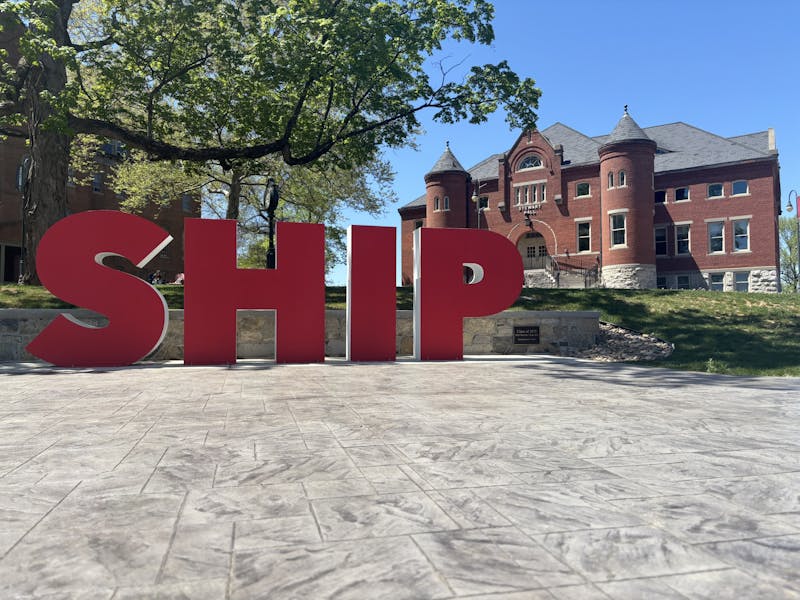Easter has passed, and now grocery stores are already bringing in their inventory for this year’s July 4 celebration. Every year, we remember our brave rebellion and war for independence against the British. Jokes at the expense of British people abound, which includes putting the word “people” in quotations with the intention to dehumanize. British food, British accents and British teeth are all subject to ridicule.
The common narrative of American independence describes a swift separation of the colonies from a nebulous entity called “the British,” positioning American identity as being in opposition to British identity. Although this tidbit of history is apocryphal, it is often said that Paul Revere’s midnight ride involved him shouting “The British are coming!” suggesting that the 18th-century colonists already saw themselves as an entirely separate people from their British counterparts.
This idea has been reflected in patriotic television episodes and specials. In one episode of the cartoon series the “The Fairly Oddparents,” America magically reverts from resembling Victorian England and Timmy Turner joyfully exclaims “Awesome! We’re not British!”
Let me specify what I, and many others, mean by “British.” Scotland and Wales share the island of Great Britain with England, technically making the Scottish and Welsh British as well. Even Ireland and the Isle of Man are part of the same archipelago called “the British Isles,” making them, in a sense, British as well.
The modern nation most associated with the term “British” is the United Kingdom of Great Britain and Northern Ireland, which includes far more than just England. However, the Celtic peoples of the British Isles generally do not refer to themselves as British, reserving the term for the English “invaders” who descend from Germanic tribes from mainland Europe, including the Angles, Saxons and Jutes.
Celtic Britons see themselves as the first victims of the British Empire, who had the English language and culture imposed on them. When I, and many others, say “British,” we generally mean English, as opposed to Welsh, Scottish, Irish or Manx. The “British” Empire is most often associated with England, and the spread of the English language. Keep in mind that for some Americans who are descended from a combination of these groups, they may simply say that their ancestry is “British” as a broad, generic label.
Pennsylvania was one of the original 13 British colonies, along with our neighboring states of Maryland, Delaware, New Jersey, New York and West Virginia, which was originally part of Virginia. The very roots of our nation are British, which should be made obvious by the fact that most Americans speak English as a native language. An entire sub-region of the northeast is called “New England,” named after the settlers’ homeland. Many U.S. counties and cities, including Pennsylvania’s own Lancaster and York, were named after towns and cities in England. Our founding fathers were inspired by English political philosophers like John Locke, who asserted that government exists to protect the property and natural rights of the governed, and that governments require the consent of the people.
Our British heritage is also seen in our court system, which follows the English Common Law tradition. This is why judges are responsible for interpreting laws, and why decisions made by higher courts are treated with authority, such as with Supreme Court decisions. Our infamous U.S. Customary Measurement System, which uses feet, inches, miles and as units of measurement, is based on the Imperial System used in Britain. We share so much culturally with our siblings across the pond that in online interactions, we often do not notice that someone else is from the other side of the Atlantic until they spell a word differently or reference something regional.
Many Americans proudly identify themselves as having Irish or Scottish ancestry, embracing their Celtic roots. However, few explicitly identify as “English/British American.” The closest label in common use is WASP, meaning “White, Anglo-Saxon Protestant,” which is usually used as a derogation against a subset of upper-class whites.
It makes sense that Americans would not want to wear their English heritage with honor. After all, it is an admission that you are a spawn of the largest empire of all time, which exploited and subjugated much of the world for centuries, even though the United States is very much a spin-off of that empire. It is more fashionable to be colonized than to be a colonizer, and the English are deemed to be the ultimate colonizers.
Regardless, the truth is that the linguistic, cultural and legal roots of our country are tied to England. As of 2020, about 46.6 million Americans identified as having at least some English ancestry. This could be far less than the actual percentage, since the English first settled America in the early 1600s, and some with mixed heritage may instead identify with more recently immigrated ancestry. America is such an ethnically mixed country that it is reasonable to assume that most of us have at least a little English blood in our veins.
As you grill your hamburgers and light fireworks on July 4, remember our founding fathers, who were, whether we like it or not, quite British.


The Slate welcomes thoughtful discussion on all of our stories, but please keep comments civil and on-topic. Read our full guidelines here.